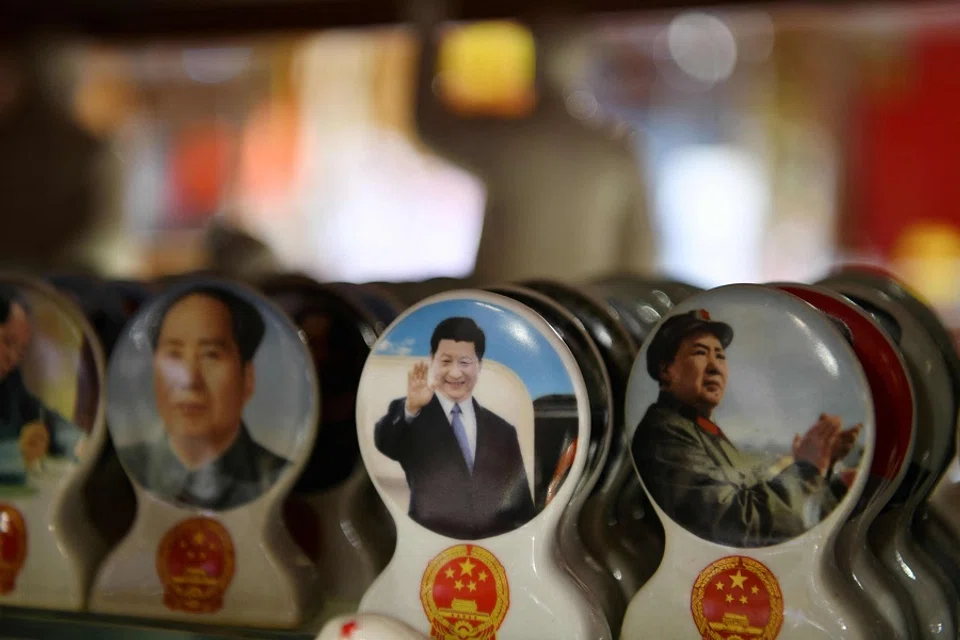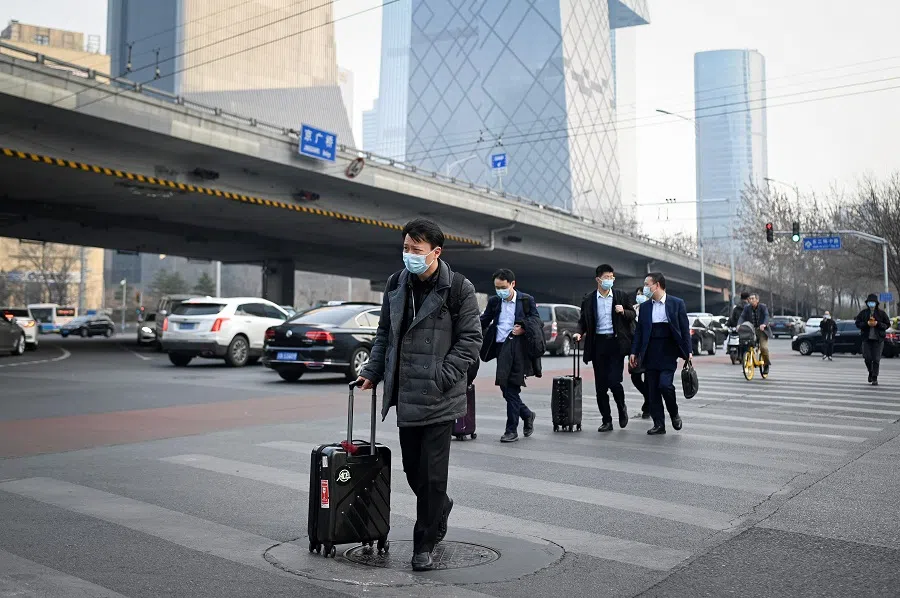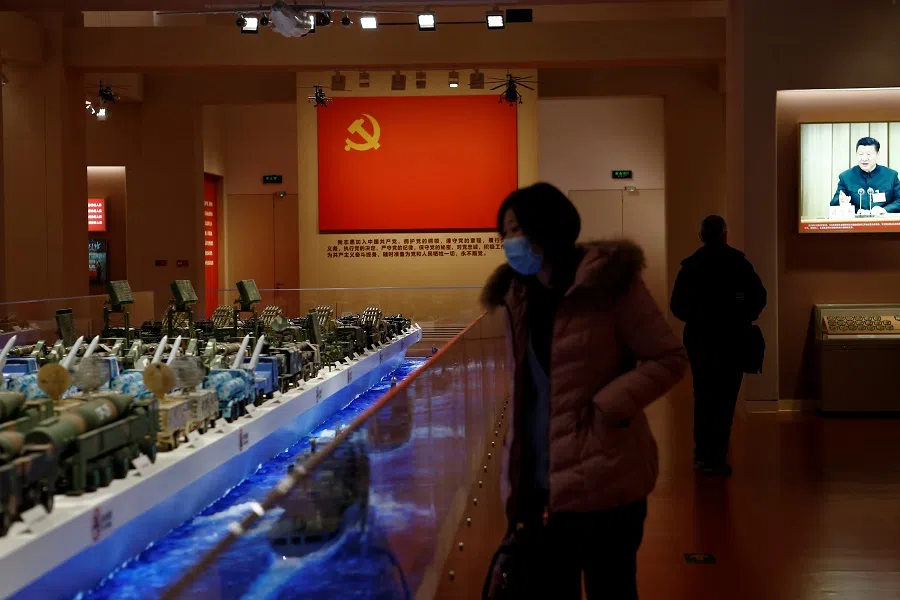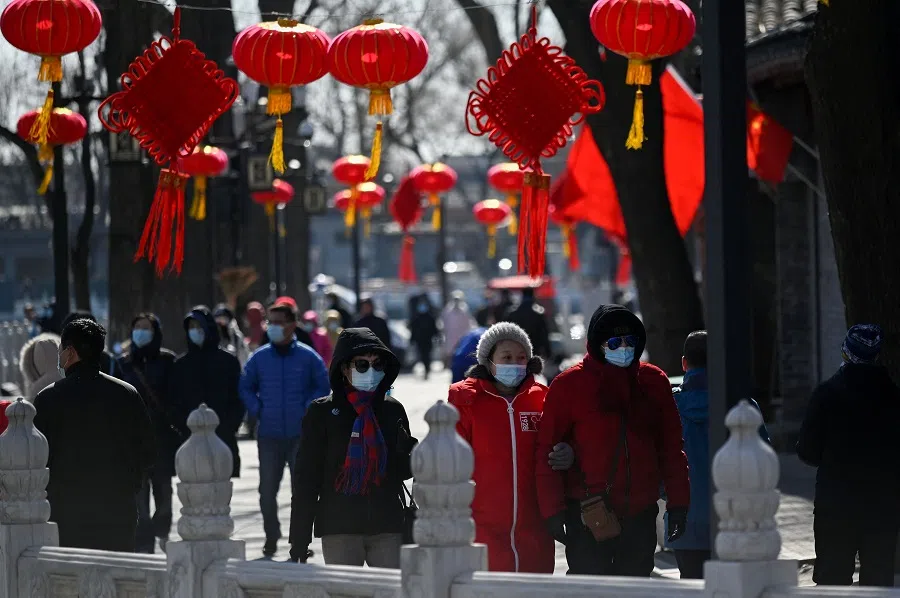China: A good guy or a bad guy?
In the international arena, anti-communism rhetoric is on the rise and the narrative of China as the bad guy is becoming increasingly mainstream. Not only that, the CCP's return to Red orthodoxy appears to be at odds with the country's reform in many areas and is adding to misperceptions of China. To truly take national rejuvenation forward and save China from facing unnecessary confrontations internationally, the Communist Party needs to innovate and mould a brand-new socialist image. Can China become the good guy again? Lance Gore finds the answer.

The international environment has been worsening rapidly for China in recent years. That is because the mainstream countries' basic assessment of China has turned negative. When kids watch movies, they often ask the adults: "Is that a good guy or a bad guy?" In international politics, the adults are actually not a lot more sophisticated than that. They are still playing children's games, branding China as the bad guy, such that they only see evil whenever they look at China. China's achievements and the tremendous benefits it brings to the global economy have turned from opportunities to a threat overnight. "Let's fight the villain" becomes the clarion call for putting together an anti-China alliance.
The vast majority of the Chinese people absolutely refuse to accept such negative characterisation. That is because it is diametrically opposite to what they feel and experience personally. The rule of the Chinese Communist Party (CCP) has created China's meteoric rise. The resultant improvement in their lives is not only very real but also enormous and comprehensive. To them, to say that they have been living their lives of growing prosperity under an evil regime can only be a foreign folklore. So, they feel indignant, and see the West as evil forces instead.
The irony is that China was enjoying everyone's favour not so long ago. The "Chinese whirlwind" was blowing across the globe. People everywhere were keen on learning about China's economic success, discussing the "Chinese model" and going crazy about the "Beijing Consensus". It became fashionable to learn the Chinese language. Confucius Institutes were flourishing in so many places. China-US and China-Europe flights criss-crossed the skies, packed with politicians, scholars, tourists, investors who sought their pots of gold in China, as well as professionals and marketing managers looking for a job. Even Donald Trump's granddaughter went on TV to show off her Mandarin and wish the Chinese people of the world a happy Chinese New Year.
Chinese 'whirlwind' comes to a grinding halt
The way the West viewed China since the beginning of the latter's economic reform went through a series of changes that can be clearly delineated. At first, they were waiting for China to collapse. Then they ignored China's tremendous achievements. They moved on to feeling a little jealous, and subsequently to giving compliments. Eventually, they were starting to put in effort to understand and study China. Had they continued in this trajectory, they might have even come to mythologise China, much like how their pioneers in the Enlightenment idealised Chinese civilisation. But the Chinese whirlwind came to a halt abruptly, and is being replaced by a fierce reversal. People who were singing praises just a moment ago are spouting rebukes now, their about-turn comparable to the performance of a face-changer in Sichuan opera. Not only have all the stigmas from the Cold War come back, a host of fresh charges are piled on top of China. Just what is going on?
The turning point came in 2017. That was the year when they determined that China was still the "Red China" that it was.

Most Chinese are not aware of one thing: "communism" is synonymous with "evil" in many parts of the world, not just in Western countries. The "great ideal" for which every member of the CCP must swear to fight for all their lives when they join the party has come so low, and this is no accident. The tarnish is due to several large-scale disasters that had occurred in the former socialist countries in the 20th century, as well as the many manifestations of the dark side of the system.
Think, for example, Stalin's bloody purges. Think the great man-made famines of China in the early 1960s and of Ukraine in the Khrushchev era. The victims in these events numbered in the tens of millions. The idea that communist countries are devoid of freedom, democracy, human rights and so on is deeply ingrained amongst the people of the West and many other parts of the world. Only a tiny minority of these people have had any first-hand experience of China, yet the mere label of "communism" evokes a series of negative responses in the masses. This is a powerful, intangible political force that has existed for a long time. There is no way to even begin to refute the negative perception.
The legacies of the Cold War - including the strategic framework, defence capabilities, set ways of thinking, common values and belief in democracy, as well as various security treaties and alliances - are a colossal combination of forces. It did not disappear after the Cold War, but lay dormant, waiting to be reactivated. For a very long time, the West thought that China was peacefully evolving into something closer to it, so when people mentioned China, they often had to add "this so-called communist state" as a qualification. The turning point came in 2017. That was the year when they determined that China was still the "Red China" that it was. Even though the Eastern colossus has undergone dramatic changes in various aspects, in their minds it is still a "communist country" that by nature is expansionist.
The authorities take advantage of this widespread nostalgia to resurrect many things from the bygone years... The party has not expected its own return to the Red orthodoxy to draw such a strong reaction from the Western countries - so strong that some of them are even willing to go for complete decoupling and wage a total Cold War all over again.
Misperceptions on both sides
The rise of "evil" is by definition a threat. When people think about China's rise nowadays, what comes to their minds are Hitler's Germany and Stalin's Soviet Union. And thus, the Cold Warriors are active again. Dormant Cold War resources are activated. Meanwhile, the Western mass media is also constantly embellishing its portrayals of China, composing its reports and commentaries along a "bad guy" storyline. They must feed the public what they would like to see and could understand. Balanced reports and objective analyses tend to cause cognitive dissonance and affect the ratings.

In the eyes of many Chinese, all this is fussy fault-finding, or even a malicious distortion of the "China story". Yet the discourse is credible and makes sense to the Western audience. Their media and politicians indulge in it tirelessly, not entirely for the sake of attacking China, but more for the commercial and political gains they could have domestically. Sure, there is much in the peddled perception that is false, erroneous, outdated and even maliciously slanderous; however, it is also packed with a lot of moral force, albeit based on incomplete information and misjudgement. To put it simply, anti-communism enjoys a wide base of support in the West and much of the rest of the world in terms of moral indignation and popular sentiments.
On the Chinese side, the young people who constitute the majority of the population know very little about the first three decades of New China. They have only experienced the rise of their country and the constant improvement of their own material and cultural life. Support for the ruling Communist Party is the core of their national pride, out of which countless "little pinks" (young, nationalistic keyboard warriors) have been produced. As for the older generations, even though they have been through the hardships of the Great Leap Forward or the Cultural Revolution, they still feel that it is the system that has enabled the rise of two superpowers (the USSR and China) nevertheless. Discontent over corruption and the income gap make people nostalgic for the spirit of the Mao era. The authorities take advantage of this widespread nostalgia to resurrect many things from the bygone years.
So, it seems that both the children and the adults are in confusion. The fundamental reason is that the CCP has never done a comprehensive and in-depth assessment of the experience and lessons from the Cultural Revolution and the Mao era. It is an area of taboo, the discussion of which is construed by the CCP as an assault on its legitimacy. As a result, it does not have a clear idea of what should be inherited and what should be discarded. The party has not expected its own return to the Red orthodoxy to draw such a strong reaction from the Western countries - so strong that some of them are even willing to go for complete decoupling and wage a total Cold War all over again.
Even by the standards of Western values, it has made impressive improvements in every aspect. Yet it is bent on putting new wine into old bottles.

But, of course, having fought the Korean War, survived the blockage and total isolation during the Mao era, and with the comprehensive national power it enjoys today, no one can derail this giant now. Nevertheless, the great work of national rejuvenation will have to face continuous and omnipresent forces of opposition, and thus exact a huge price.
This price could have been avoided altogether, because it is based on erroneous notions on both sides of the conflict. China, of the age of the socialist market economy, is brand new and evolving rapidly. Even by the standards of Western values, it has made impressive improvements in every aspect. Yet it is bent on putting new wine into old bottles. For this, it bears a bad name that is inconsistent with reality and is slipping into a long-term face-off with the Western camp. Some may claim that the inevitability of China-US conflict stems from the logic of the Thucydides Trap and has nothing to do with ideology. Such an understanding fails to see the bigger picture. It cannot explain why both sides had been very friendly with each other up to just a few years ago, so much so that China was even invited to join hands with the West as a "responsible stakeholder".
Although often highly effective, their (the CCP's) overbearing methods are at odds with the basic values of modern society at the end of the day.
CCP expects absolute allegiance
Those currently at the helm of the Chinese government belong to a generation that grew up in the midst of turmoil. Concepts like human rights, democracy, freedom and rule of law are but vague notions to these hardened leaders, because such things were fundamentally non-existent during their formative years. What these leaders are accustomed to is total submission to the arrangements of the "organisation" and to the needs of the party. When the party waves its hand, one is supposed to just "pack up and set off" with absolutely no bargaining.
Like the revolutionary forefathers, they also expect absolute submission and selfless devotion. (Think innocents who will remain pure-heartedly loyal to the party even after the party has wronged them and put them through hell, much like the famous orator Qu Xiao, on whose life story the Chinese movie The Herdsman was based.) They would sometimes employ some means as they govern the country that are outrageous to an outsider. The willingness to do so comes from what they have picked up in the age of the "dictatorship of the proletariat". It is part of their "habit of the heart", as much as it is the product of millennia of imperial political culture. Although often highly effective, their overbearing methods are at odds with the basic values of modern society at the end of the day.
Revolutionary thinking needed
The CCP should concede that its official ideology is currently totally unattractive to the rest of the world, and in fact has had no positive effect at all in the great national achievements since the beginning of China's reform epoch. While the ideology may be helpful for income distribution at some point in the future, even then it would have to be put through sufficient innovation in order to be compatible with how the market works. The CCP should mould a brand-new socialist image through innovation, or else face a twofold consequence: failure to cover all the bases on the domestic front, and being stuck for a long time on the back foot internationally, in which it will find itself engaging in a new round of confrontations unnecessarily. It will be fighting, seemingly for the great rejuvenation of the Chinese nation, but actually for all the wrong reasons.
China must make true progress and not merely grow strong.

Fortunately, time seems to be on the Chinese side. On one hand, the Western liberal democratic system is grappling with its own challenges right now, in which numerous urgent difficulties will be unresolvable unless it reforms itself, and thus the confidence of the West in its own system is being undermined. On the other hand, if China continues to grow in strength, the developed countries will have to take a closer look at China's policies and system sooner or later, and not just see them as resurrected Stalinism. But for this to happen, China must make true progress and not merely grow strong.
Equally fortunately, China's new generation is going to be very different. Theirs is a different "habit of the heart". They have a stronger awareness of rights and ardently stand for liberty and the rule of law. The political pressure they exert also differs from that of the older "revolutionary masses", setting a limit to regression to old ways, and also ensuring that China will keep moving forward but without being Westernised.
All of the foregoing can be summarised in two points. Firstly, socialism with Chinese characteristics is in urgent need of a brand-new image. It should not be inheriting wholesale the legacies of the Soviet Union - that is to say, its bad reputation, old system and its macro set-up from the Cold War. Secondly, the CCP needs to earnestly sort out the experience and lessons from the Cultural Revolution, as well as boldly innovate on the theoretical and systemic level. With proper, effective adjustments, the bad guy can turn into the good guy, just as quickly as the good guy became the bad guy.
Related: 'Time and situation' in China's favour, but is China invincible? | China-US strategic showdown: Will the east wind prevail over the west wind? | Confucius Institutes accepted in SEA and embraced by Cambodia, unlike in the West | Survey: China the most influential and distrusted power in Southeast Asia | Can the CCP forge an inclusive social contract and build a healthy civil society?


![[Big read] When the Arctic opens, what happens to Singapore?](https://cassette.sphdigital.com.sg/image/thinkchina/da65edebca34645c711c55e83e9877109b3c53847ebb1305573974651df1d13a)


